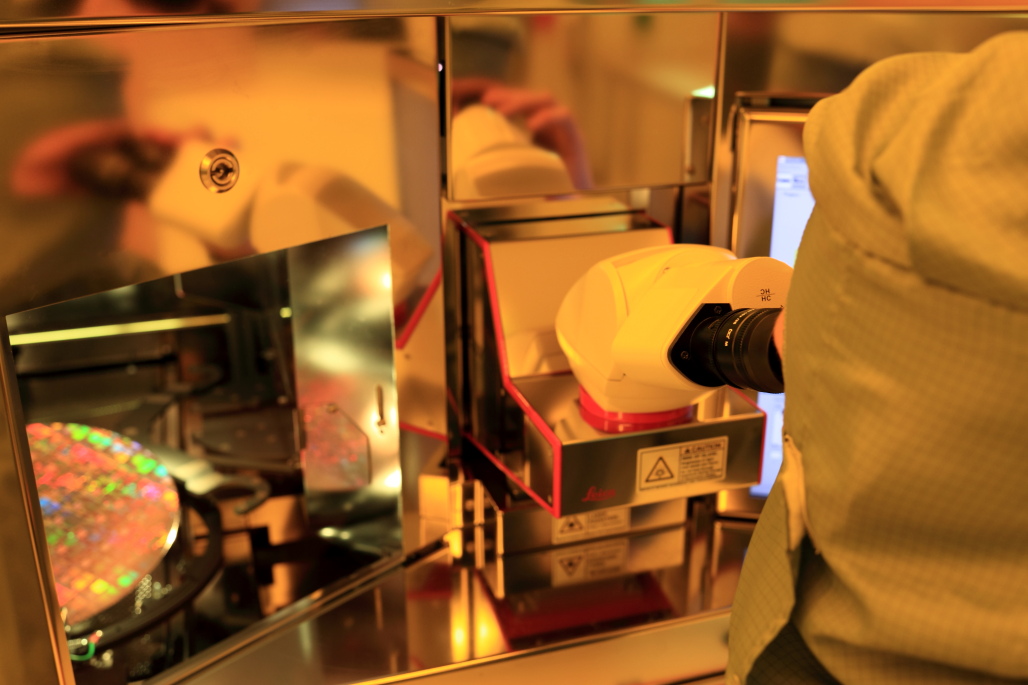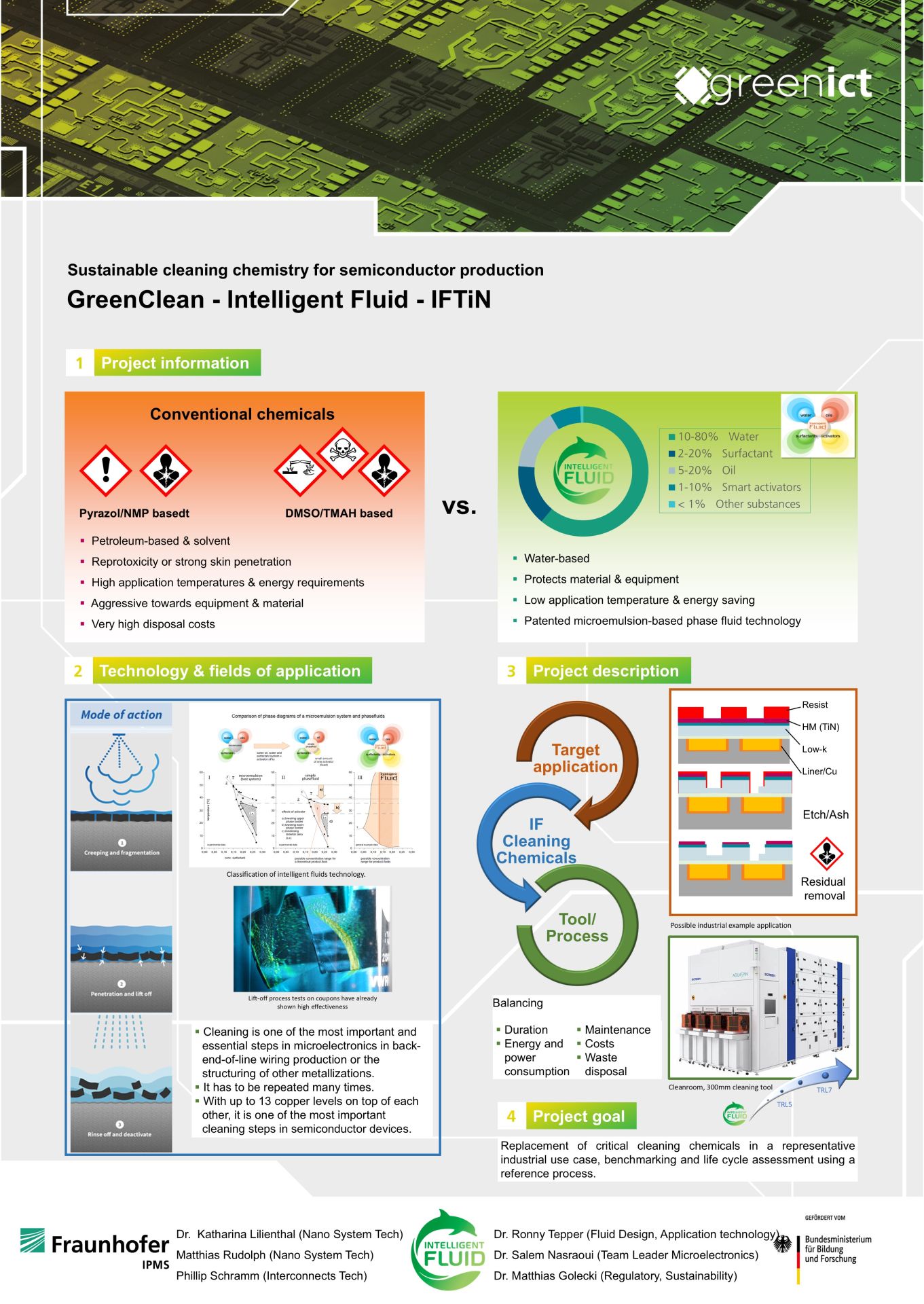Environmentally friendly cleaning solvents for lithography (IFTiN)
Project duration: 09/2024 - 08/2025
Sustainable, water-based cleaning solutions for the semiconductor industry
The aim of the project is to evaluate an environmentally friendly, water-based alternative to the petroleum-based solvent processes currently used in the semiconductor industry, which are hazardous to the environment and health. Several key steps are to be taken in the project to ensure the cleanroom capability, function and automation capability of the sustainable, water-based cleaning solutions and to evaluate their ecological savings potential along the process chain. The need for aggressive chemical additives and extensive wastewater treatment is to be eliminated in order to make the entire cleaning process more sustainable and environmentally friendly.
Evaluation and automation of sustainable cleaning solutions in cleanrooms
intelligent fluids GmbH has developed an innovative phase fluid technology for the effective and residue-free removal of photoresists and their residues after structuring processes. In the Green ICT Space project, fluids, supported by a production-related wafer handling system for 300mm wafers, are now to be introduced into the cleanroom and tested on industry-relevant structures.
To this end, intelligent fluids GmbH will select the optimal formulations and support material compatibility tests and fluid characterizations. In addition, the CO2 footprint of the selected cleaning formulation will be specified. Fraunhofer IPMS CNT will provide 300mm test substrates, technical support in the cleanroom and an industry-standard wet chemistry tool. Together, the partners will collect and compare data on process performance and CO2 footprint and publish the results. The aim is to compare the fluids with conventional cleaning processes and to evaluate the technology for use in semiconductor factories.
Ecological savings potential through water-based cleaning formulations
The ecological savings potential of the project is promising and diverse. By replacing petroleum-based solvents with water-based formulations, significant reductions in CO2 emissions and energy consumption can be expected. A key lever for optimizing the life cycle assessment lies in increasing the water content of the fluids, which has already been significantly increased in past experiments. In addition, further ecological benefits can be achieved by identifying optimal surfactant systems and using renewable raw materials. The surfactant content should be kept to a minimum and the oil component can also be optimized for renewable raw materials.
There is great potential in the activators, which make up a significant proportion of the formulation, as new, sustainable raw materials are entering the market. Key process parameters such as process and rinsing time, water and energy consumption, consumption of the intelligent fluid medium as well as maintenance requirements and throughput will also contribute significantly to the calculation of the life cycle assessment. The aim is to create a detailed database in order to precisely quantify the potential CO2 savings and significantly reduce the environmental impact.
Sustainability as a new sales argument and growth driver
Once the project has been completed, there will be a wide range of possibilities for utilizing the results and opportunities for further development. The life cycle assessment is a unique selling point for intelligent fluids GmbH. The data obtained can be used to provide customers with more sound support for product implementation. In addition, the new formulation developments and process optimizations significantly improve the quality of the products.
 Fraunhofer Institute for Photonic Microsystems
Fraunhofer Institute for Photonic Microsystems


